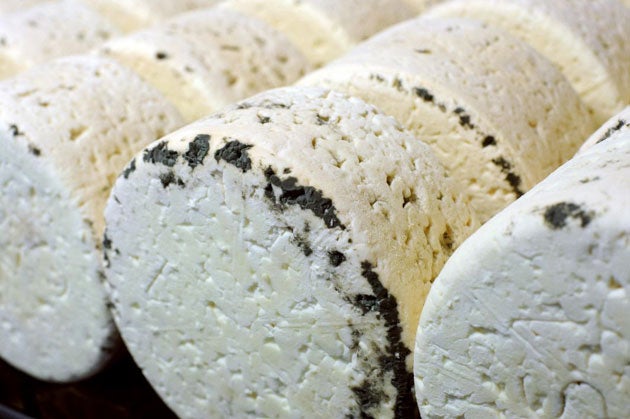Roquefort war rages across the Atlantic

Your support helps us to tell the story
From reproductive rights to climate change to Big Tech, The Independent is on the ground when the story is developing. Whether it's investigating the financials of Elon Musk's pro-Trump PAC or producing our latest documentary, 'The A Word', which shines a light on the American women fighting for reproductive rights, we know how important it is to parse out the facts from the messaging.
At such a critical moment in US history, we need reporters on the ground. Your donation allows us to keep sending journalists to speak to both sides of the story.
The Independent is trusted by Americans across the entire political spectrum. And unlike many other quality news outlets, we choose not to lock Americans out of our reporting and analysis with paywalls. We believe quality journalism should be available to everyone, paid for by those who can afford it.
Your support makes all the difference.War has broken out between the lame-ducks of Washington and the "cheese-eating surrender monkeys" of Paris. The spat of 2003 may be officially over but the almost-departed Bush administration has found the time to target a commercial cruise missile on roquefort cheese, a symbol of French gastronomic excellence.
Washington decided this week to triple the existing 100 per cent import duties on the celebrated, blue-veined sheep cheese from the southern Massif Central. Officially, this is part of an interminable battle over the refusal of the European Union to buy US beef which has been artificially pumped-up by growth hormones. However, the targeting of roquefort demonstrates the deep ill-feeling that exists on farm trade between Washington and Paris.
There was a violent reaction in France when import duties were first raised on roquefort cheese 10 years ago. The small farmers' leader José Bové – then a roquefort producer – began his rise to international celebrity by attacking a McDonald's restaurant at Millau, near Roquefort, with mallets and a bulldozer in August 1999.
The announcement that US import duties would be tripled from March led to renewed threats yesterday. Laurent Reversat, leader of the union of ewe-milk producers, said: "It looks as though we will be obliged to commemorate the tenth anniversary of the dismantling of the McDonald's at Millau in an appropriate way." Symbolically, the row is a contest between two concepts of agriculture and two approaches to food. Roquefort can be made only by traditional methods, using milk from the Lacaune mountain breed of sheep, grazed within 60 miles of the village of Roquefort-sur-Soulzon.
Despite the "home-on-the-range" image generated by cowboys, almost all American beef is now produced in crowded "feed lots" from cattle whose growth has been accelerated by drugs. The EU banned growth hormones on European farms more than two decades ago on health grounds. All imports of US and Canadian beef produced in this way – in effect all North American beef – were banned in 1988.
After a long-running legal battle, the World Trade Organisation ruled in October that there was no sound evidence that human health was threatened by eating hormone-treated beef. But Brussels refused to lift its ban and brought another case before the WTO. Washington therefore decided this week to impose retaliatory duties on a range of European food exports. Only roquefort cheese was singled out for a 300 per cent duty. All British foodstuffs were, de facto, exempted as a reward for the constant support of successive UK governments for the lifting of the EU ban on growth hormones.
The refusal of France to support the invasion of Iraq in March 2003 generated a vicious anti-French campaign in the American media. The phrase "cheese-eating surrender monkeys" was originally an ironic attack on American attitudes in the cartoon programme The Simpsons. It was, nonetheless, hijacked by anti-French campaigners in America and Britain.
Join our commenting forum
Join thought-provoking conversations, follow other Independent readers and see their replies
Comments